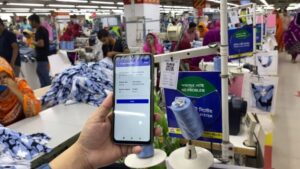
Political uncertainty in Bangladesh is deterring foreign investment and trade, particularly in the ready-made garments (RMG) sector, according to South Korean Ambassador to Bangladesh Park Young-sik. Speaking at a recent event organised by the Overseas Correspondents Association of Bangladesh (OCAB), the ambassador emphasised that the current interim Government has led to hesitation among businessmen regarding investments.
“Whenever I talk with businessmen, the common concern is that they are now in a wait-and-see state,” Park stated, noting that this cautious approach is reflected in the declining rates of private investment and consumption. He warned that the stagnation in these areas could result in slower economic growth for Bangladesh, a country heavily reliant on its RMG industry for exports and employment.
Ambassador Park drew parallels between Bangladesh’s current political climate and South Korea’s past experiences with political instability, such as the impeachment of its president.
Highlighting the crucial need for Bangladesh to attract long-term foreign investment, Park pointed out that the country’s reliance on a single export item, namely RMG, has limited its growth potential. He urged the Government to diversify its investment sources, particularly by seeking capital from China and the Middle East, which are less integrated into the international financial market compared to Western countries.
The ambassador also addressed the issue of Bangladesh’s debt situation, noting that the country is in a vulnerable position when it comes to borrowing. He mentioned that since 1973, 111 South Korean companies have invested in 240 infrastructure projects in Bangladesh, with US $ 5.4 billion in projects completed between 2016 and 2022. Park highlighted the competitive advantage of South Korean loans, which offer a remarkably low interest rate of 0.01 per cent for 40 years, compared to higher rates from Japan, China, and international financial institutions.
Moreover, he discussed the challenges in attracting skilled workers from Bangladesh to South Korea, citing language barriers and issues with adherence to work contracts as significant hurdles.






